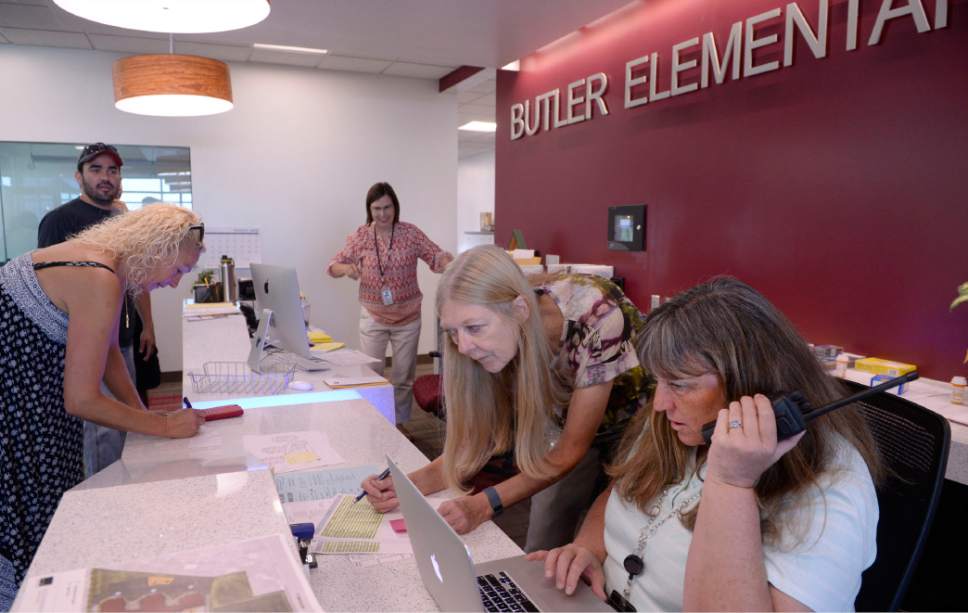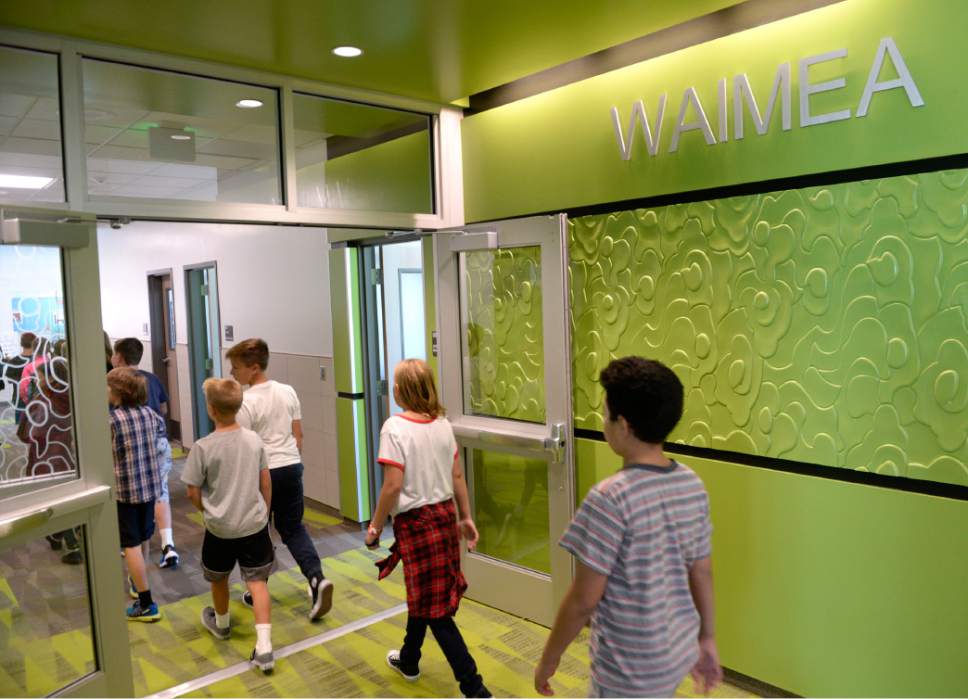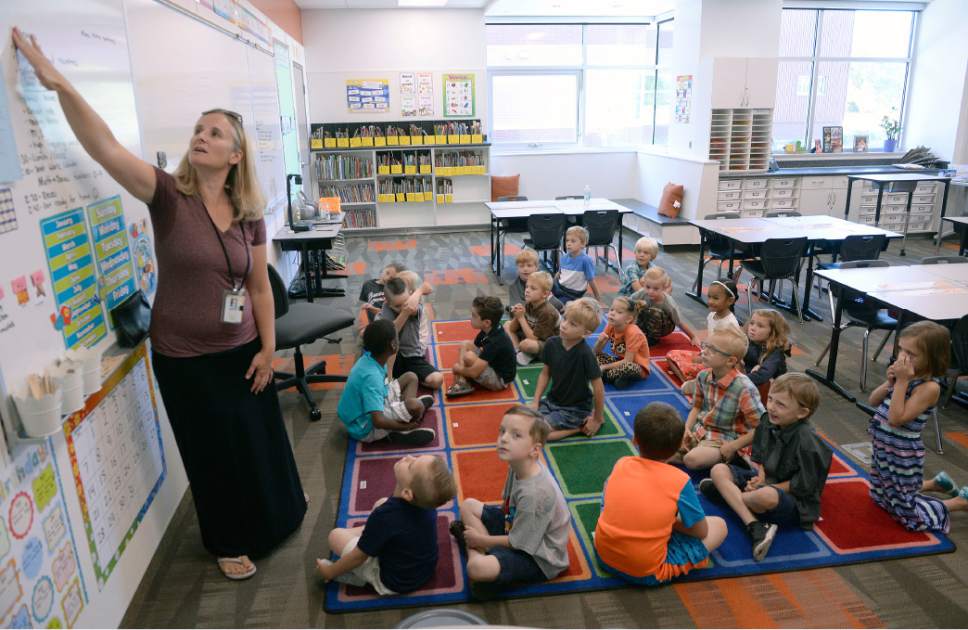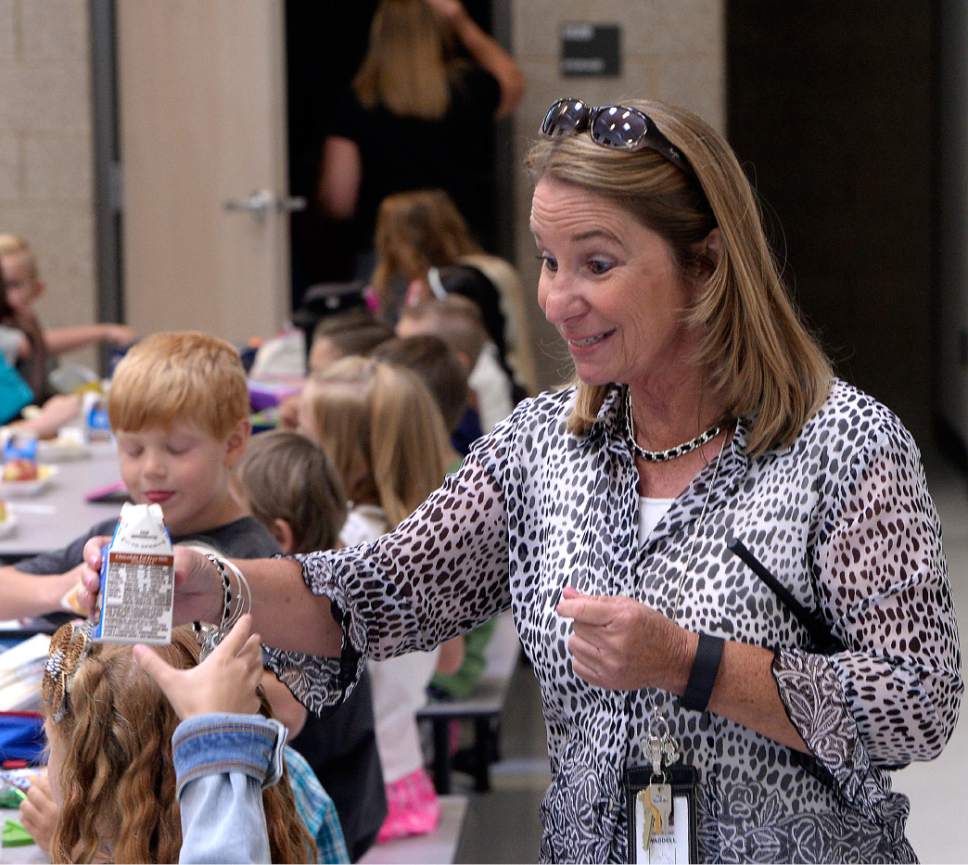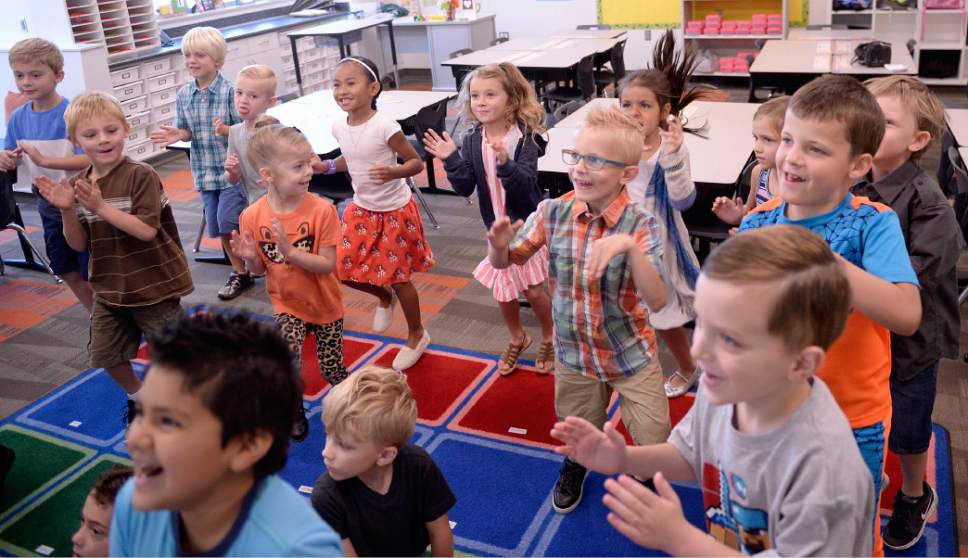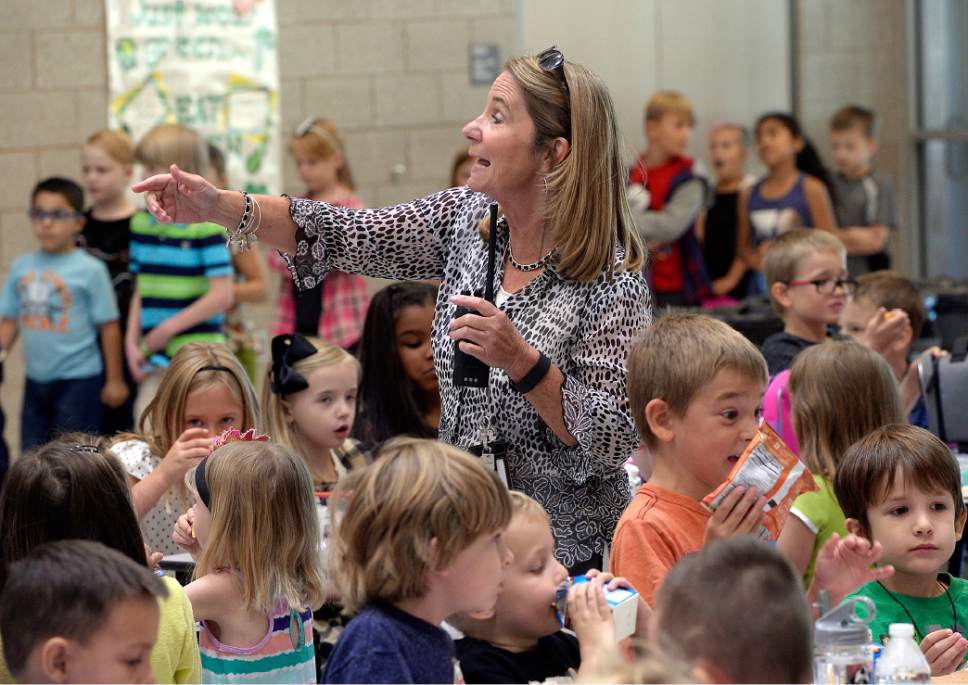This is an archived article that was published on sltrib.com in 2016, and information in the article may be outdated. It is provided only for personal research purposes and may not be reprinted.
This year's state school board election is both the first and the last of its kind.
For years, candidates were blocked from ballot access — chosen instead by a screening committee and, ultimately, Utah's governor.
A 2014 court decision gutted that system, throwing open the doors to the governing board of Utah's public education system.
But while the school board is traditionally a nonpartisan office, the school board ballot will include candidates' party affiliation beginning in 2018 after legislative actions this year.
Several candidates told The Salt Lake Tribune that the direct, nonpartisan structure of the 2016 election was the deciding factor for their campaigns.
And all were motivated by the issues facing public schools, including ongoing controversy regarding statewide testing, a decline in the number of new and qualified teachers, disparate resources in rural communities, parental rights and Utah's annual status as the lowest-funded schools in the nation.
—
Teacher licensing and retention
In June, the Utah Board of Education created a new teaching license that requires a bachelor's degree and content knowledge — as well as mentoring by an experienced educator — but not formal classroom training.
Educators objected and additional hearings were held, but the policy was ratified by the school board in August.
The change troubles veteran educators like Granite School District teacher and District 10 candidate Kathleen Riebe.
"We should not be leaving our kids with unsupervised, unqualified people," she said.
Weber School District teacher and District 4 candidate Jennifer Graviet said the new rule burdens mentor educators, without the promise of additional salary or planning time.
And the Academic Pathway to Teaching (APT) incentivizes would-be teachers to forgo traditional education programs, she said.
"Why would anybody go through the time, the money, the investment, if they just have to take a test?" Graviet said.
Graviet's opponent, incumbent board Vice Chairman Dave Thomas, disagrees. The traditional teaching route is good, he said, but should not be the only way. "I want to take down those artificial barriers," he said.
APT was presented as a remedy to Utah's teacher shortage. School districts frequently struggle to fill staffing holes and statewide data show 42 percent of new teachers quit within five years.
The teacher shortage is primarily among entry-level educators, Thomas said, which is why licenses need to be modernized for the career volatility of millennials and why he is pushing for $40 million in targeted state funding to boost entry-level pay.
Several candidates spoke of a need for Utah to better pay, support and retain its teachers.
"Every Friday night for family night we order pizza, and the person delivering it is a third-grade teacher," District 10 candidate Gary Thompson said. "That shouldn't be happening."
Alisa Ellis, candidate for District 12, said the solution to teacher retention is to scale back on the regulatory burdens imposed by the federal and state government, and by the state school board.
"The way to solve the problem is not by pushing more regulations," she said, "but by allowing teachers the ability to teach to take back their classroom."
—
Standards and testing
Since 2002, when federal lawmakers approved the No Child Left Behind Act, states have been compelled to administer annual, year-end, standardized tests to track student and school progress.
The law was updated last year, but the testing requirements survived.
"If we have to do that, we should do the minimal amount [necessary] to satisfy the federal government," Thomas said.
The school board recently voted to abandon SAGE — Utah's year-end test — in grades nine through 11 and instead use the ACT exam, already administered to every high school junior.
District 11 candidate Erin Preston said some form of statewide testing is necessary to guarantee students are being taught.
"If we can't inspect what we expect as far as high educational attainment in this state," she said, "then we have no way to ensure that each student is receiving a quality education."
But Wesley Christiansen, District 15 candidate, said even the ACT fails to predict whether a student is prepared for higher education. "The tests don't really measure what makes a student or an individual successful," he said. "That's his ability to work and his ability to work with people."
Scott Neilson, a Nebo School District educator and candidate for District 13, said testing accomplishes little if students aren't graded for their performance, which is the policy for SAGE.
If teachers can't use a statewide test to "actually grade the students," he said, "the data becomes skewed."
And District 8 candidate Richard Nelson said the time spent testing needs to be reduced, though he was unsure what approach the school board should take.
"But I will know very quickly when elected," he said, "and will push and help effect the change."
Statewide tests are based on minimum grade-level benchmarks, which have proven controversial since Utah's adoption of the Common Core in 2010.
The school board regularly updates its standards, and has made several departures from Common Core, but the cloud of nationalization has followed standardization ever since.
"It's too bad, it's turned into a synonym for evil in the state," District 7 candidate Shelly Teuscher said of Common Core. "I see the value in a common platform between states."
Incumbent District 12 board member Dixie Allen agreed, saying interstate commonality benefits students.
"It is important for a student from Utah to have the ability to compete alongside students from other states when entering universities, colleges and trade schools around the United States," she said.
Some board members and candidates favor a departure from statewide standards and instead allowing districts to chart their own grade-level benchmarks.
"I'm actually in favor of allowing our districts and charters to go away from those standards as long as they have a plan," District 13 incumbent Stan Lockhart said.
Michelle Boulter, candidate for District 15, compared education standards to agricultural standards — mandating that crops be planted at a designated time throughout Utah.
"That wouldn't work for St. George," she said. "We know what is best for our area, just like the local school districts know what is best for our children."
Christiansen said the state board should set minimal standards and allow districts the autonomy to implement those standards based on local needs.
"I think the state's responsibility is to build the framework or lay the foundation," he said. "And then the local school board, their job is to finish the building."
Thompson, a critic of Common Core and other national standards, said abolishing statewide standards would most likely be a step too far.
"I would have to be convinced and shown the system where it would alleviate my concerns of complete, utter, total chaos ," he said.
—
Rural opportunities and funding equalization
State school board candidates, like Utah's population, largely reside along the Wasatch Front
But as a group, they represent 41 school districts, from Alpine — with more than 75,000 students — to Daggett, with fewer than 200 students.
Lockhart said the board needs to remember rural districts when it creates new requirements.
"Many times the district office is a superintendent and an assistant," he said. "They just don't have the staff or if they do, it's one person."
And District 7 candidate Carol Barlow-Lear said she'd like the office of the Utah Board of Education to be a service agency, offering support, rather than a monitoring agency.
Several candidates said technology could reduce the cost of programs like Advanced Placement or concurrent enrollment for rural schools.
"I think the beauty of the age we live in right now is the internet," Ellis said, "and the ability to do some of these things online or remotely."Preston said rural schools need flexibility to find cost-effective approaches to basic services.
"For instance," she said, "paying parents for transportation of their kids rather than [operating] expensive bus routes."
Cummins said the concern is not Utah's small districts, but rather its large ones. "I think Alpine District and Jordan District are too big," she said. "There needs to be a split."
In recent years, lawmakers have studied methods to equalize school funding, between urban and rural districts and between high and low property tax areas.
Teuscher said those efforts must be carefully developed. Salt Lake City School District benefits from an urban tax base, she said, but also is home to a diverse population, with many students at risk for academic failure. "You have to look not only at just a blanket equalization, but an equalization by need," she said.
Ellis said equalization efforts bolster the authority of statewide policymakers at the expense of local school leaders.
"I would support changing school district boundaries before I supported just a general equalization of funding," she said.
Boulter said that when some districts have more revenue than others, they should be encouraged to voluntarily give that funding away.
"I've never been one to subscribe to the redistribution of wealth in any shape or form," she said. "But I am one who believes in the kindness of people."
—
Charter schools and vouchers
In 2007, Utah lawmakers approved a voucher law, offering subsidies to families enrolled in private education programs. Utah voters rejecting that law, overturning the will of the Legislature through a referendum effort.
But talk of vouchers, or similar programs, resurfaced this year as GOP gubernatorial candidate Jonathan Johnson made educational savings accounts a piece of his platform.
Utah was also visited by Mike Pence, running mate of presidential candidate Donald Trump, who touted vouchers as a cure for educational ills.
Most school board candidates said the voting public has made its wishes clear.
"The community provides an education for its kids," Barlow-Lear said. "It's not a personal family entitlement."
District 8 candidate Janet Cannon served on the school board between 1994 and 2012. She said her opposition to vouchers cost her the chance to retain her board seat.
"I'm pretty sure that's why the [candidate selection] committee didn't put my name through to the governor," she said.
While vouchers failed, other school choice initiatives took hold, from independent charter schools to Utah's open enrollment law.
Charters now enroll 10 percent of public education students at more than 100 campuses. That growth has led to questions of funding and oversight, and tension between charters and their district peers.
"I think there are some really good [charters] out there, but the transparency of all of them needs to be increased," Riebe said.
Thomas said Utah's charter laws were written without input from the state school board and reflect the hostility the board felt toward charters at the time. "Those statutes need to be revised," he said. "They need to be updated. They need to make sure the lines of authority are crystal clear."
Cummins said she'd like to see more charter schools elect governing board members to reflect the democratic leadership of school districts.
"The one thing that I am concerned about with charters is the public-private partner relationships," she said. "To me that leads to fascism."
Other candidates said the performance of charter schools needs to be studied, and that approval of new charters should be slowed.
"We need to see what's going on before we keep growing them," Graviet said. "We're trying to support two school systems and we can't even fund, properly, one school system."
But Barlow-Lear said that charters are here to stay, as are school districts, and it's ineffective to look at either type as a rigid group.
"We need to stop talking about both systems as monolithic," she said. "They're really made up of many different kinds of school systems — some that are really effective and some that need work."
bwood@sltrib.com, Twitter: @bjaminwood Upcoming school board debates
District 15
Tuesday, Sept. 13, 6:30 p.m. • Tuacahn High School, St. George
District 13
Thursday, Sept. 15, 6:30 p.m. • Freedom Prep Academy, Provo
District 11
Tuesday, Sept. 20, 6:30 p.m. • Early Light Academy, South Jordan
District 7
Wednesday, Sept. 21 • Weilenmann School of Discovery, Park City
District 8
Thursday, Sept. 22 • American International School of Utah, Murray
District 4
Tuesday, Sept. 27 • Syracuse Arts Academy, Syracuse
District 10
Wednesday, Sept. 28 • Channing Hall, Draper
District 12
Thursday, Sept. 29 • Franklin Discovery Academy, Vineyard



